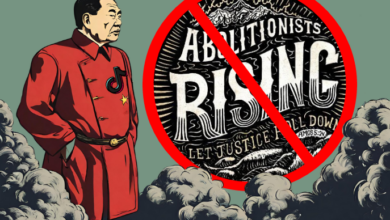Is Cru Still Pushing Critical Race Theory?

Cru, formerly Campus Crusade for Christ, has been criticized repeatedly over the past several years for pushing many ideas that have more in common with Marxist thinkers than with the words of the Bible. Earlier in 2024, we reported on some of their “Compassionate and Faithful” curriculum that had gone public, where they pushed unbiblical views of sexuality as well as ‘race.’ The question today is: have they learned their lesson and turned from these ideas? The short answer is no, and a recent document published by Cru’s “Family Life” ministry titled “How to Comfort a Friend: Racial Trauma” demonstrates their continued pushing of ideas such as Critical Race Theory. The document goes as far as to encourage ‘white friends’ to apologize lest they contribute to “unjust situations continuing.”
Bad Definitions and Bad Advice
First, how does the document define racial Trauma:
Racial trauma: It’s the holistic response People of Color experience due to persistent acts of discrimination, bias, and even hate. Racial trauma and its aftermath are a destructive force to families and generations around the world. Like other kinds of trauma, it can cause powerful physical and emotional responses.
emphasis added
Immediately there is a bias setup, that “racial trauma” is something experienced only by one group of people. Though not flat-out promoting ideas such as “systemic racism,” there is a slant developed here in the definition that should be paid attention to as the document is examined. Further, the trauma aspect is being played up, seemingly placing this still ill-defined idea of racial trauma in a similar category to serious traumas that people suffer, such as our brothers and sisters facing persecution in Nigeria. Rape, kidnapping, torture, and the like are real traumas, and it frustrates this author greatly when people piggyback off of greater issues in order to lend weight to their views. The “trauma response” Cru is describing is, in general, a choice the “victim” has made rather than the mind-shattering effects of real trauma.
The document proceeds to lay out generic, yet bad and condescending, advice. This was covered in more detail in our recent podcast. The advice given includes “validate their experience” and not “dissect the situation, [rather] ask questions to truly understand their experience.” This is a terrible way to approach any situation, and much of the best advice I’ve ever been given has come from people who were willing to challenge, not validate, my feelings, perceptions, and emotions. You should not approach your friend skeptically, but neither should you start with the assumption that their feelings are valid and should be coddled. That is unhelpful and condescending.
From Caring Friend to Perpetuator of Racism
If it feels hard to believe something so different from your own experience, realize your reality may be very different from your friend’s. Consider how you could continue learning about experiences like theirs. But know that silencing differences contributes to unjust situations continuing. We don’t want to keep people with different thoughts and experiences on the outside of our relational circles.
emphasis added
First, it was simply that you must affirm your friend’s feelings for the sake of the friend. Now, if you do not affirm the feelings, you are “silencing differences” and “[keeping] people… outside of [your] relational circles.” Since the document has brought a skin color dynamic into this document, what would you call it if you silenced someone, contributed to injustice, and separated from people different than you, all based on skin color? That’s right, it would be labeled “racism.” Thus, the implication is you are racist if you do not affirm your friend’s emotional response, even if the perceived insult is untrue. Worse, you are apparently contributing to some larger system of unjust situations.
Later, the document will double down on this point, and further echo the Black Lives Matter mantra of “white silence is white violence,” when it says that we must “show up and speak up. Silence furthers indifference.” Additionally, the reader is advised to “continue conversations with those who’ve experienced this kind of injustice and loss… about steps you could take to love them well as both a friend and advocate.” It does not seem that this is about you helping you “comfort a friend” at all. It seems to be about your friend helping you with your inherent racism.
Quoting Critical Race Theory Advocates
The document included several quotes and links to articles. One quote comes from Lilla Watson, an Australian aboriginal social justice activist. Below is the context of the quote from the speech it was used in, with the portion Family Life quoted in bold:
Many whitefellas who got involved found themselves on a steep learning curve. They had regarded themselves as normal: but as Frantz Fanon said, in a racist society, it is normal to be racist. So they had to confront their own racism, and that of their community: and to recognise the persisting colonial perceptions, attitudes and relationships which underpinned it. Some had difficulty recognising their paternalism: in Brisbane, we used a slogan: If you have come to help me, you are wasting your time. If you have come because your liberation is bound up with mine, then let us work together.
Very clearly Lillia is advocating for an idea of systemic racism and systemic guild upon all “whitefellas” by nature of their skin color. Even the portion that the Family Life document quotes is not good. The Bible clearly calls Christians to come alongside one another to help. Nowhere does God’s word say helping one another is a waste of time. Yet this is further tainted by the contrast of “help” and “liberation.” What liberation? Liberation from “racist society,” “colonial perceptions,” and “whitefellas.”
Again, this document starts out with the reader helping their friend, and is now about the friend confronting the reader for their contribution to the perceived “racial trauma” simply due to the reader being white.
To further clarify how offputting it is that this Lilla Watson quote was used, we will briefly look at how radical Frantz Fanon is. No, this is not guilt by association, as Family Life did not quote him, but it does further emphasize radical Marxist theories behind the Lilla Watson quote that Family Life did use.
no gentleness can efface the marks of violence; only violence itself can destroy [Westerners]. The native cures himself of colonial neurosis by thrusting out the settle through force of arms
Was no due diligence used at all in picking this Lilla Watson quote? Or does it reveal an intent from the writer to promote Marxist ideas? Either way, the result is the same, and we can see how the ideas being presented in this document align with a view of “race” informed not by God’s word, but by a Critical Race Theory lens that labels entire groups guilty simply for the skin they were born with.
The other quoted materials are no better, with one emphasizing the truth of the incident is irrelevant, with Family Life pulling out the ideas that the reader should not express “disbelief that it’s racism; asking lots of questions [to verify if it was]” or ” innocent intentions.” From a CNN article, Family Life pulls a quote from Shadeen Francis, a “therapist… who specializes in sex therapy and social justice.”
An apology without action is empty… So to apologize for [racism] that is not new… and that you benefit from doesn’t actually serve the goal of being supportive. Then it also feels like the other person’s responsibility to somehow make that right by saying, ‘It’s fine.’
Not only is the idea of “white privilege” being brought in, but the reader is encouraged to go beyond simply apologizing for benefiting from the racist system. The reader is to bring action into it, otherwise, you are placing responsibility on the victim of “racial trauma” to drop the subject.
This is a radical departure from the Bible and, shockingly, it appears Cru is not only refusing to back down but rather increasing their reliance on secular ideas such as Critical Race Theory.



